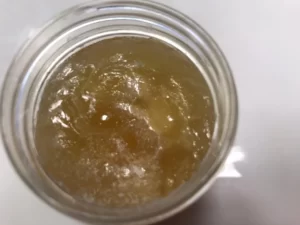What is Calcium Chloride
Calcium Chloride is a notable inorganic compound. The chemical formula of calcium chloride is CaCl2. This white crystalline solid is distinguished by its remarkable solubility in water. When you dissolve it, you will notice its hygroscopic agent, actively absorbing moisture from its surroundings.
Historical Background of Calcium Chloride
Tracing its origins back to the 15th century, Calcium Chloride was initially a by-product with limited applications. It was not until the latter part of the 18th century, following the ammonia-soda process for soda ash manufacturing, that its potential was fully recognized. This discovery transitioned it from a waste product to a substance of great utility.
Properties of Calcium Chloride
When you examine Calcium Chloride, you’ll find a range of fascinating properties:
- Molecular Weight: 110.98 g/mol.
- Physical State: A crystalline solid at room temperature.
- Density: 2.15 g/cm³ (anhydrous).
- Boiling Point: 1,935 °C.
- Melting Point: 772 °C.
Production Process
The production of Calcium Chloride involves the neutralization of hydrochloric acid with calcium hydroxide. This process is not only efficient but also allows for large-scale manufacturing, catering to its widespread demand in various industries.
Sustainability Concerns
The manufacturing and utilization of Calcium Chloride have raised important sustainability questions. As an environmentally conscious reader, you should be aware of these aspects:
Resource Efficiency: Modern production methods focus on minimizing waste and optimizing the use of raw materials. This approach not only reduces environmental impact but also enhances the overall efficiency of the production process.
Environmental Impact: The production and application of it can potentially affect local ecosystems. It is crucial to manage and treat any by-products or waste materials responsibly to prevent environmental degradation.
Energy Consumption: Manufacturers are increasingly adopting energy-efficient processes to reduce the carbon footprint associated with the production of the material.
Recycling and Reuse: Efforts are underway to explore the recycling and reuse of the material, especially in industrial applications, to create a more sustainable life cycle for the compound.
Uses of Calcium Chloride in Different Industries
Calcium Chloride’s multifaceted nature makes it indispensable in various sectors. As a reader interested in its broad range of applications, you’ll find its utility in:
- Road Safety and Maintenance: Beyond its widely known de-icing capabilities, calcium chloride for dust control is commonly utilized on roads. Its hygroscopic nature helps to keep dust particles down, providing safer and cleaner road conditions.
- Food and Beverage Industry: In the culinary world, it is a key ingredient as a food grade calcium chloride. It is used to firm soybean curds into tofu and as a firming agent in canned vegetables. Moreover, Calcium chloride in sports drinks acts as an electrolyte and bottled water helps in maintaining hydration and electrolyte balance in the body.
- Agriculture: It is utilized in agriculture to improve soil quality and as a preservative in storing fruits and vegetables, ensuring longer shelf life and reducing spoilage.
- Pharmaceuticals and Healthcare: In the medical field, it is used in solutions for intravenous treatments and as an electrolyte replenisher.
- Construction and Manufacturing: The compound plays a role in concrete mixtures, where it acts as a setting accelerator. It’s also used in the production of plastics and other materials, where its properties are harnessed to improve product quality.
- Scientific Research and Laboratories: Calcium chloride in laboratories serves as a desiccant in drying tubes, essential for experiments requiring moisture-free environments.
Download Properties


